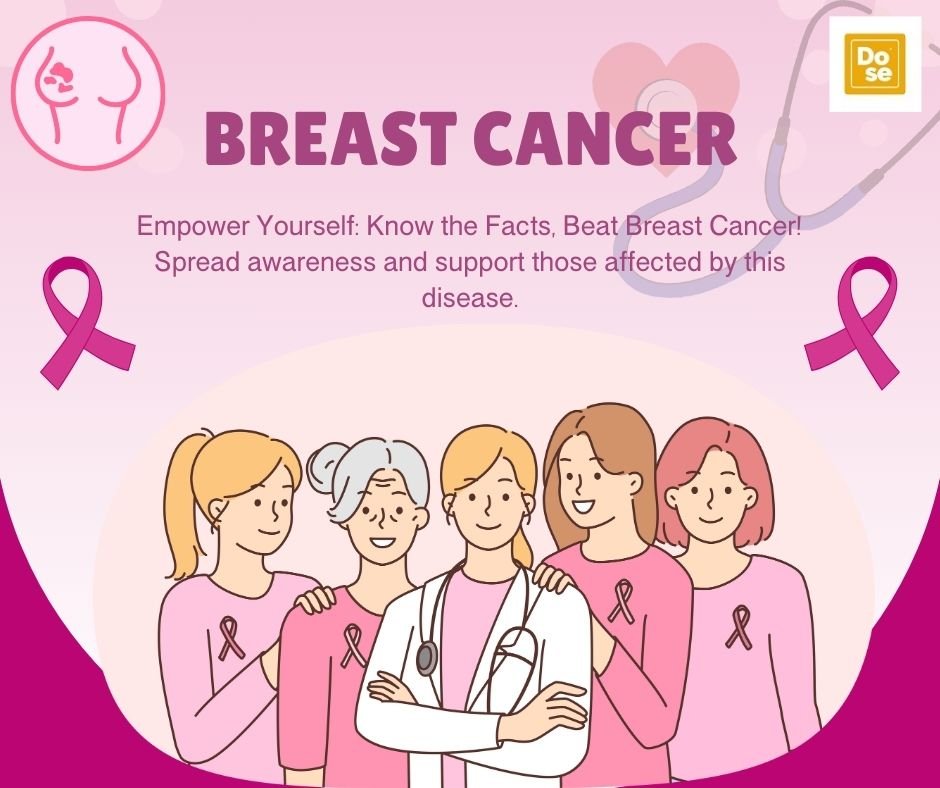Breast cancer remains one of the most prevalent cancers among women globally, but advancements in both prevention and treatment offer hope and improved outcomes. This comprehensive look delves into how lifestyle changes can influence breast cancer risk and explores emerging treatment options that are revolutionizing care. raloxifene 60 mg tablet Breast cancer solution pill.
Lifestyle Changes for Breast Cancer Prevention
Lifestyle modifications play a crucial role in reducing breast cancer risk. Although not all risk factors are controllable, adopting a healthier lifestyle can significantly lower the chances of developing the disease.
Diet and Nutrition
A balanced diet rich in fruits, vegetables, whole grains, and lean proteins contributes to overall health and may reduce breast cancer risk. Some specific dietary considerations include:
- Fruits and Vegetables: These are high in antioxidants, vitamins, and fiber. Studies suggest that a diet high in fruits and vegetables can lower the risk of breast cancer due to their antioxidant properties, which help neutralize free radicals that could damage cells.
- Healthy Fats: Incorporating sources of healthy fats, such as avocados, nuts, and olive oil, while reducing saturated fats and trans fats, is beneficial. Omega-3 fatty acids, found in fish like salmon, have been linked to a lower risk of breast cancer.
- Limit Processed Foods: High consumption of processed and sugary foods can lead to obesity, which is a known risk factor for breast cancer. Reducing intake of processed meats and refined sugars is advisable.
Physical Activity
Regular physical activity is another key component of breast cancer prevention. Exercise helps maintain a healthy weight, regulates hormones, and boosts immune function. The American Cancer Society recommends at least 150 minutes of moderate-intensity exercise or 75 minutes of vigorous-intensity exercise per week. Activities like walking, swimming, and cycling can help achieve these goals.
Weight Management
Obesity and overweight status, particularly after menopause, are associated with an increased risk of breast cancer. Maintaining a healthy weight through a combination of diet and exercise can mitigate this risk. Weight management strategies include mindful eating, regular physical activity, and, if necessary, medical guidance.
Alcohol Consumption
Excessive alcohol consumption is linked to an increased risk of breast cancer. Limiting alcohol intake to no more than one drink per day is recommended. The risk appears to increase with the quantity of alcohol consumed, so moderation is key.
Smoking Cessation
While smoking is not directly linked to breast cancer, it has been associated with several other cancers and health issues. Quitting smoking can improve overall health and potentially lower the risk of breast cancer.
Regular Screenings and Self-Exams
While not a lifestyle change per se, regular screenings and self-exams are essential for early detection. Mammograms, clinical breast exams, and self-exams can help identify abnormalities early, when treatment is often more effective.
Emerging Treatment Options for Breast Cancer
The landscape of breast cancer treatment is evolving rapidly, with new therapies and approaches enhancing patient outcomes. Here are some of the most promising emerging treatments:
Targeted Therapies
Targeted therapies aim at specific molecules or pathways involved in cancer cell growth. These therapies are designed to minimize damage to healthy cells while attacking cancer cells. Key examples include:
- HER2-Targeted Therapies: For HER2-positive breast cancer, treatments like trastuzumab (Herceptin) and newer agents like tucatinib target the HER2 protein, which promotes cancer cell growth.
- CDK4/6 Inhibitors: Drugs such as palbociclib, ribociclib, and abemaciclib inhibit proteins that help cancer cells divide, proving effective in treating hormone receptor-positive breast cancer.
Immunotherapy
Immunotherapy harnesses the body’s immune system to fight cancer. Recent advances include:
- Checkpoint Inhibitors: These drugs block proteins that prevent immune cells from attacking cancer cells. For breast cancer, pembrolizumab and atezolizumab are examples of checkpoint inhibitors being studied.
- Cancer Vaccines: Research is ongoing into vaccines that stimulate the immune system to target cancer cells. These are still largely in experimental stages but hold promise for future treatment.
Personalized Medicine
Personalized medicine involves tailoring treatment based on individual genetic profiles and specific characteristics of the cancer. This approach aims to enhance the efficacy of treatments and minimize side effects.
- Genomic Testing: Tests like Oncotype DX and MammaPrint analyze the genetic makeup of health cells to predict recurrence risk and guide treatment decisions.
- Pharmacogenomics: This field studies how genes affect an individual’s response to drugs. Tailoring medications based on genetic information can improve treatment outcomes and reduce adverse effects.
Advanced Radiation Techniques
Radiation therapy has become more precise with advancements in technology. Techniques such as:
- Intensity-Modulated Radiation Therapy (IMRT): Allows for targeted radiation delivery, minimizing exposure to surrounding healthy tissue.
- Stereotactic Body Radiation Therapy (SBRT): Provides high doses of radiation with pinpoint accuracy, often used for localized cancers or metastases.
Novel Hormonal Therapies
For hormone receptor-positive cancer, new hormonal therapies are being developed to overcome resistance to existing treatments:
- SERDs (Selective Estrogen Receptor Degraders): Agents like fulvestrant (Faslodex) are designed to degrade estrogen receptors, offering a new approach to managing hormone-driven cancers.
- AIs (Aromatase Inhibitors): Newer generation AIs, such as letrozole and anastrozole, are effective in lowering estrogen levels and are often used in postmenopausal women.
Experimental Approaches
Ongoing research is exploring several experimental treatments:
- CAR-T Cell Therapy: This approach involves modifying a patient’s T-cells to target and kill cancer cells. Though still primarily used for blood cancers, research into its application for solid tumors like is underway.
- Gene Editing: Technologies like CRISPR are being investigated for their potential to correct genetic mutations that drive cancer.
Conclusion
Breast cancer treatment and prevention have seen remarkable progress, driven by a deeper understanding of the disease and innovative research. Lifestyle changes, such as improved diet, regular exercise, and weight management, play a crucial role in reducing risk. Meanwhile, emerging treatments, including targeted therapies, immunotherapies, and personalized medicine, offer new hope for more effective and tailored approaches to care. Continued research and advancements hold the promise of further improving outcomes and ultimately finding a cure for breast cancer. Read More…





hgh ohne insulin
References:
hgh bodybuilding kaufen (enoticias.Site)
dianabol test cycle
References:
testosterone cypionate and dianabol cycle (Toni)
how many iu of hgh does the body produce
References:
Hgh Versus Testosterone (internskill.in)
how muscular can a woman get without steroids
References:
strongest muscle building supplement at gnc (music.birbhum.in)
when to take cjc 1295/ipamorelin
References:
ipamorelin + epithalon + Cjc-1295 no dac (divephotoguide.com)
does cjc 1295 ipamorelin increase appetite
References:
aod 9604 and ipamorelin at The same time reddit (qwli.pro)
ipamorelin what does it do
References:
ipamorelin definition nci drug dictionary (https://zudate.com/@rufuskifer5320)
cjc 1295 ipamorelin results
References:
What is cjc 1295 ipamorelin
tesamorelin+ aod9604 + cjc1295 + ipamorelin
References:
ipamorelin vs sermorelin fatloss (Chastity)
cjc-1293 and ipamorelin results
References:
do you need a prescription for ipamorelin; Lorna,
Этот информационный материал привлекает внимание множеством интересных деталей и необычных ракурсов. Мы предлагаем уникальные взгляды на привычные вещи и рассматриваем вопросы, которые волнуют общество. Будьте в курсе актуальных тем и расширяйте свои знания!
Исследовать вопрос подробнее – https://quick-vyvod-iz-zapoya-1.ru/